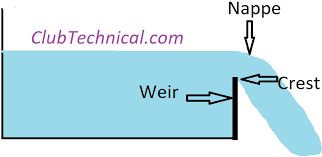Innovations in Road Construction Industry
Innovations in
Road Construction Industry
Prefabricated Plastic Roads
This
innovation addresses the problem of environmental impacts caused by road
construction. With a rapidly growing supply of plastic waste, reuse options
that turn waste into resources are the need of the hour. These are
prefabricated, modular, and hollow road structures built from recycled
plastics. In Zwolle and Giethoorn, Netherlands, there are two bicycle paths
made purely from waste plastics. This is the result of an invention by Simon
Jorritsma and Anne Koudstaal, who launched their first product in 2018. The
advantages of using Prefabricated Plastic Roads include:
- Faster project
completion: PlasticRoads
lead to the reduction of the project completion time from months to a few
days. This is due to the lightweight and modular design of the roads.
- Water Storage: The hollow
space in PlasticRoads can be used to temporarily store water. This helps
prevent flooding during extreme precipitation.
- Storage: The hollow space
can also be used for the transit of cables, pipes, sensors, or the
electric charging of vehicles.
- Smaller carbon
footprint: The
PlasticRoad is a completely circular product and, thus, has a
significantly smaller carbon footprint than traditional road designs.
Solar Roads
A solar
roadway is a road surface that produces electricity. The layers of a solar road
include a glass layer, an electronic layer and a base plate layer. The system
is employed to generate electricity by using photovoltaic cells. This type of
roadway was first built in 2016 in France. The only real-world application of a
solar roadway was done by Peachtree Corners Smart City and The Ray. The roadway
is estimated to produce more than 1,300 kilowatt-hours of electricity annually.
Let us look at the advantages of using solar roads:
- Production of
renewable energy: Solar roadways are employed to
generate electricity, thus contributing to sustainable development.
- Greater life
span: The
lifespan of solar roads is around 20 years which is much greater than that
of Asphalt roads which is 7-12 years.
- Enhanced safety: Solar roads come with the possibility to affix solar lamps, charged by these solar panels.
Recycled Plastic Roads
Recycled plastic roads were developed by Rajagopalan Vasudevan,
a professor of chemistry at the Thiagarajar College of Engineering in India.
The material replaces 10% of a road's bitumen with repurposed plastic waste. Many
different types of plastics can be added to the mix, including carrier bags,
disposable cups, hard-to-recycle multi-layer films, and polyethylene and
polypropylene foams. So far, 2,500 km (1,560 miles) of plastic-tar roads have
been laid in India. Chennai was among the first cities globally to adopt this
technology when the municipality commissioned 1000 km of plastic roads in 2004.
The advantages of using recycled plastic roads include:
·
Lower carbon emissions: By 2040,
there are set to be 1.3 billion tonnes of plastic in the environment globally.
Recycling this plastic can help lower carbon emissions.
·
Enhanced Maintenance: Adding
plastic to roads appears to slow their deterioration and minimise potholes.
·
Economic benefits: The
incorporation of plastic results in savings of roughly $670 (£480) per
kilometre of road.
·
Durability: Plastic roads can
withstand both heavy loads and traffic.






Comments
Post a Comment